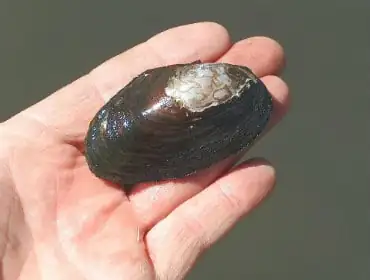California floater
Freshwater mussels are one of the most endangered groups of animals in the United States. Yet they are an important part of river ecosystems, filtering water and providing habitat and breeding grounds for many species.
The California floater mussel is native to parts of the western United States but has disappeared from many locations. In Arizona, the species may be extirpated. Dams and other types of changes people have made to rivers have contributed to the mussels’ decline. Like other mussels, the California floater relies on host fish to disperse its larvae. Changes to rivers that impact fish movements or survival can thus lead to mussel declines.

threats
pollution
habitat loss/
degradation
development
Climate change/
severe weather
How We Help

The Zoo maintains a small group of California floaters at the Arthur L. and Elaine V. Johnson Conservation Center. They are housed with longfin dace, a native fish species that serves as a suitable host for the mussels during their larval stage.
We hope to grow our California floater population once the mussels reach maturity and are capable of reproducing.
Video: California Floater Mussels Take Fish For Joyride
The California floater mussel does a surprising amount of travel – for a bivalve. First it gets ejected from its parent’s shell into the wide watery wilderness. Then it leads a nomad’s life clamped on the fins or gills of a fish. Once it’s all grown up, the mussel goes to work filtering the water, keeping it clean for all the life that depends on it.
Check out this amazing video from KQED, an NPR and PBS affiliate in California.








